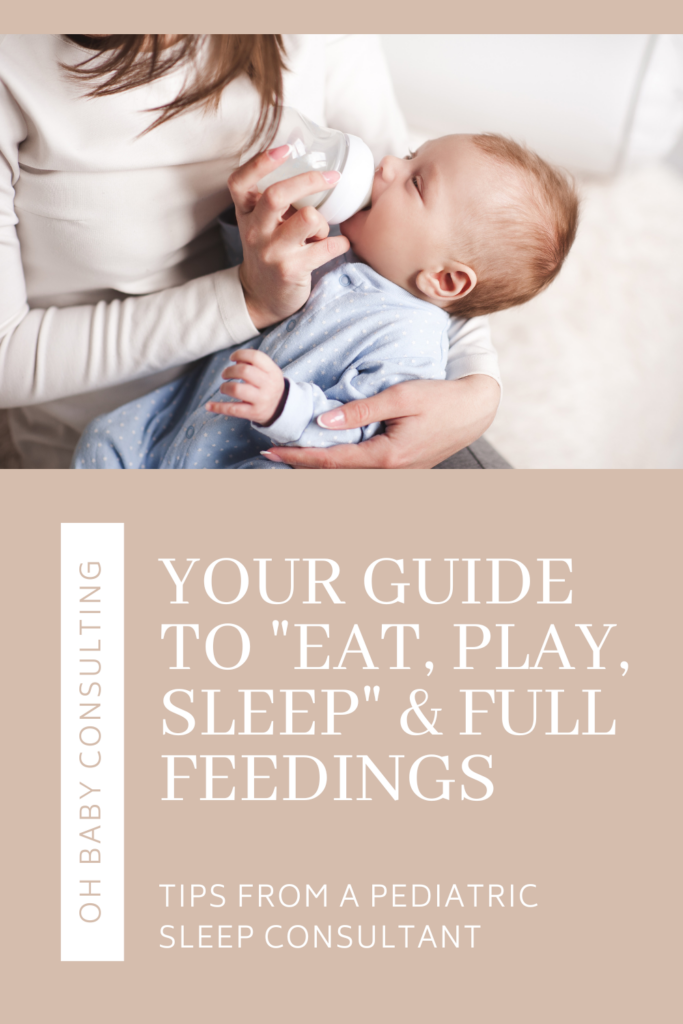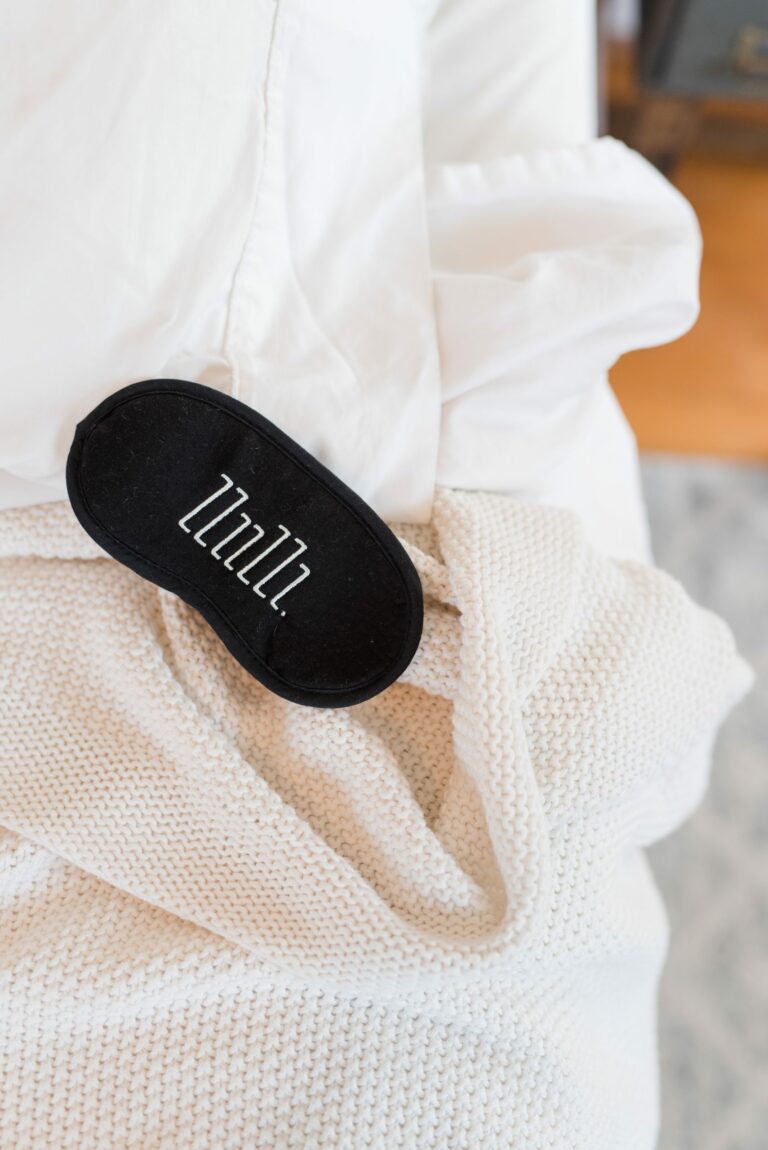Establishing healthy sleep habits from the time you bring your little one home from the hospital will go a long way towards helping you fully enjoy the newborn stage while also setting your babe up for sleep success as they grow and develop.
If you’re an expectant parent or the parent of a newborn and don’t want to navigate the newborn stage solo, I have TWO different option for guidance & support. The Newborn Guide will lay out everything you need to know about newborn sleep in an easy-to-digest, downloadable format. If reading is not your thing or you want some more one-on-one support, a 1:1 Coaching Package will help you get your little one off to a great sleep start!
One of the most important ways to get sleep (and eating) off to a great start is to practice the pattern of “eat, play, sleep” when structuring your day. You’ve probably heard this term tossed around but may not be totally sure what it actually means.
Well, it’s pretty simple. This is the order you should ideally try to follow as you work to establish a general schedule once you’re home with your new baby. For example, when your newborn wakes up from their nap, change them, bring them out into the daylight, and give them a full feeding. After the feeding, there may be a little bit of time to hang out & play before it’s time to lay them down for their next nap (though in the first 4-6 weeks, feeding will probably take up most of your newborn’s age appropriate wake window).
When following this pattern, you are attempting to feed your baby when they wake up from a sleep period vs. to sleep at nap time. Not only does this help to minimize the association between feeding and falling asleep (an association can be hard to break as your little one gets older and begins needing you to feed throughout the night for comfort vs. for calories) but it also helps to ensure your baby is getting a full feed vs. just snacking all day.
Why are full feeds important?
If you are breastfeeding, full feeds ensure that your little one is getting both the foremilk – the liquid portion of your milk that quenches your baby’s thirst – and the hindmilk – the part of your milk that is richer in fat content and will satisfy your baby’s hunger. The perfect balance is vital for proper growth and development. Additionally, full feeds help maintain a nursing mom’s milk supply. If the breast is never able to empty fully, it is going to send signals to the body to slow down production because it thinks it’s making too much. We know that the only thing that truly helps to stimulate milk production is milk removal – basic supply and demand – so promoting full feedings is an important piece of the supply puzzle.
Regardless of whether you’re nursing, formula-feeding, or a combination of the two, full feeds are very important in ensuring your little one stays happy and satisfied between feedings. When your baby is getting full feeds, you will be better able to discern between their cries and not assume that every cry is out of hunger (since tired cries often mimic hunger cries). Full feeds also ensure that your child is getting adequate calories and is therefore able to get more consolidated sleep. Full bellies and full naps are equally important!
How do I know if my baby is getting full feedings?
If you are concerned that your baby is not getting full feedings, it can be helpful to check with your pediatrician or lactation consultant. In the meantime, here are some tips you can try:
- If your baby frequently falls asleep while feeding, help them to stay awake during feeds by tickling their toes, singing to them, and feeding in a brightly lit room during the day.
- Minimize distractions during feedings like the TV, pets, or other children.
- Feed immediately after waking when your baby is most alert vs. when they are nearing the end of their age-appropriate wake window (by following eat, play, sleep!)
Please know that the eat, play, sleep routine is NOT about demanding that your baby follow a rigid, clock-based schedule and is not to say that you can’t feed your baby at other times when you believe they are hungry. If you have a newborn, it is also pretty realistic to think that your baby is going to fall asleep while eating from time to time, especially in the first month or two. However, promoting full, awake feeds as often as possible is super important for establishing both healthy feeding & sleeping patterns. Eat, play, sleep can help you do that.
If you have a newborn, keep practicing! As your baby is able to stay awake for longer, there will be more opportunity to put space between their eating and sleeping. If you have an older baby (over 3 months) and are struggling to separate eating from sleeping or feeding is the only way your baby will fall asleep, please reach out. Together we can make sure that your baby is getting nice full feeds and long, restorative periods of sleep!














